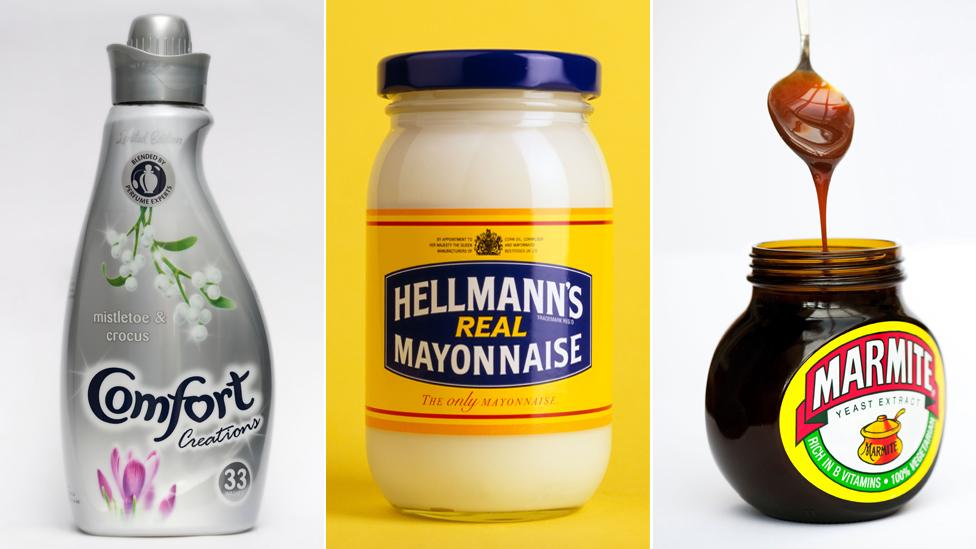Typhoo Tea: Cost of a cuppa to go up
- Published
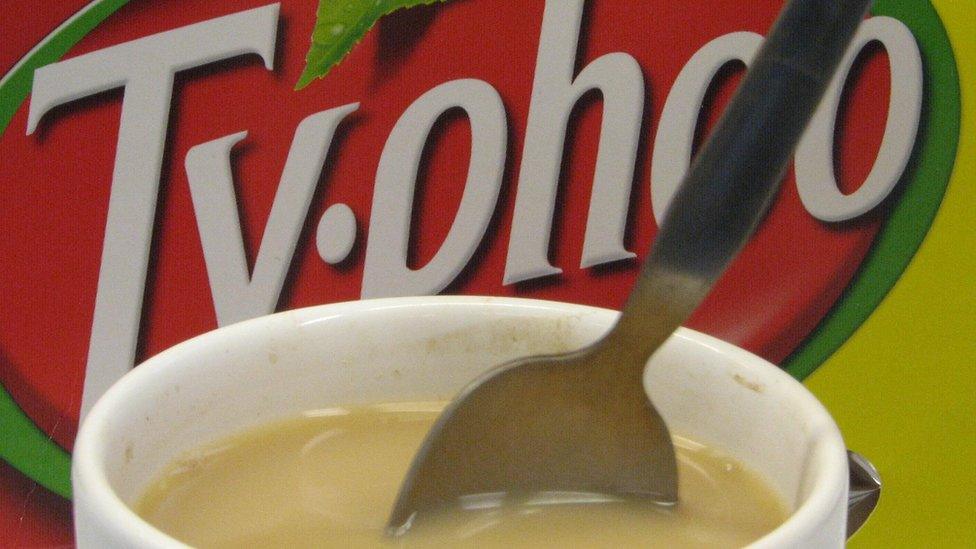
The cost of a cuppa will have to rise, according to the boss of Typhoo.
For chief executive Somnath Saha, the economics of tea are simple and brutal.
Typhoo Tea produces 125 million tea bags a week at its factory in Moreton, Wirral, which have just one ingredient - tea leaves, and they are imported.
Black tea is a global commodity, traded in dollars. Following the fall in sterling since the Brexit vote, costs have soared for this renowned brand as 95% of its sales are in the UK.
"This is an absolute disaster for a company the size of ours," says Mr Saha.
"The very sharp fall in the pound means the impact is at least a quarter of a million pounds a month for us. This is having a very negative impact on our business and we are really suffering. It's now come to a point where it's not sustainable for us."
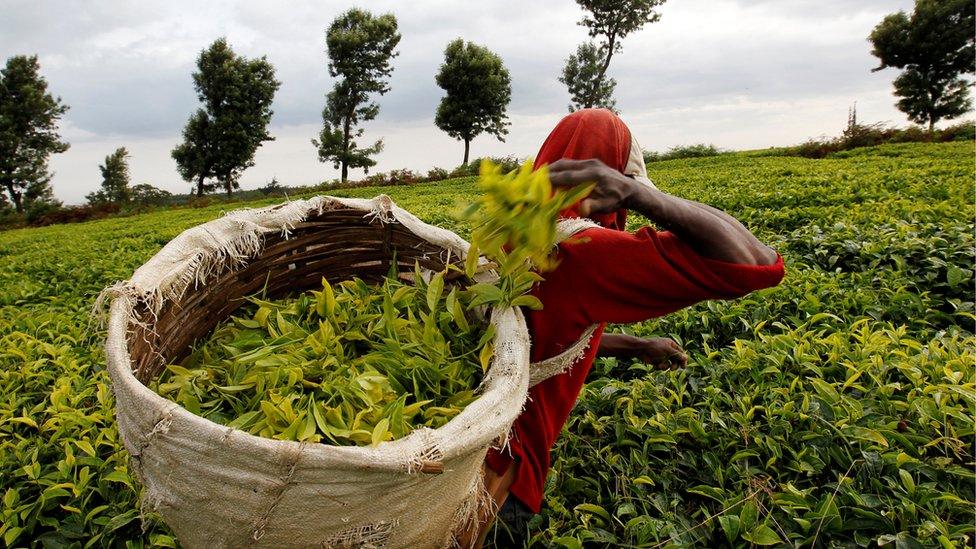
Typhoo imports most of its tea leaves from Kenya
The news comes amid warnings of rising prices in the grocery sector, and with supermarket chain Morrisons increasing the cost of a jar of Marmite by 12.5%.
High volume, low margin
There are plenty of winners from the fall in the value of sterling. But Typhoo Tea is a graphic illustration of what it's like for a business with one raw imported material.
Typhoo has been trading for more than a century. These days, most of its black tea comes from Kenya. It's then blended and packaged on site. The company also packages own-label tea for most of the major supermarkets.
In addition, it produces a range of herbal teas and those ingredients are sourced in euros.
It's a high-volume, low-margin business.
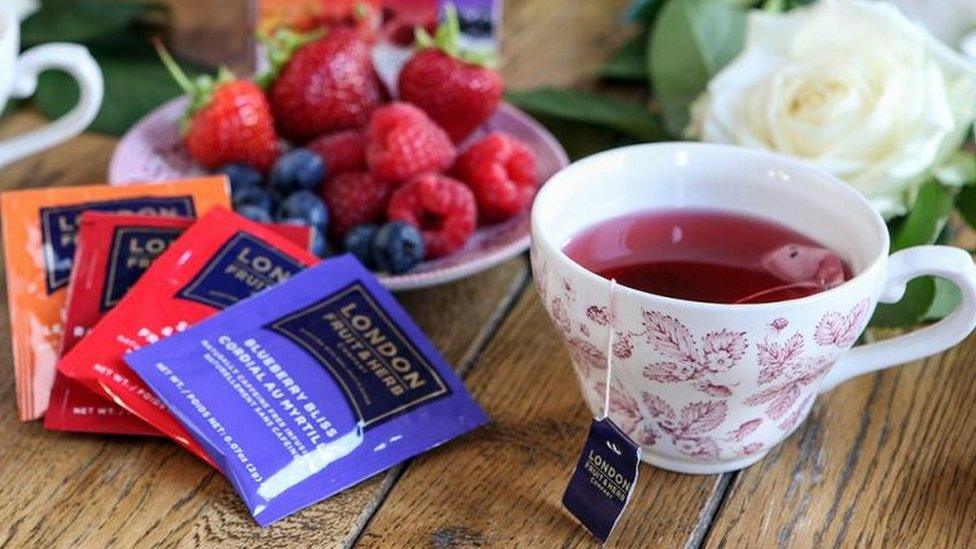
The company pays for ingredients for its herbal teas in euros
The cost of the ingredient depends on the quality of the leaf. A typical 80kg bag of black tea could be bought for £90 to £100 at the beginning of the year. The company says that same bag now costs £120 to £150 at the weekly international auctions.
In other words, it is paying an awful lot more for the same amount of tea.
'Serious situation'
"We don't have big enough margins between us and retailers to absorb all these costs. We're looking at how to mitigate some of them, from our labour, overheads and marketing costs, which will affect the growth of the business and employment in long run. But some of these currency costs will have to be passed on, as neither us nor the retailers can absorb any more cost increases," Mr Saha says.
Like other suppliers, he is in discussions with the supermarkets about price rises. He denies posturing to try to secure a better deal.
"Absolutely not. This is a really serious situation for us. Nobody wants to do this, but ultimately some of the costs will go to the shoppers. There is no other option," Mr Saha says.
"It's one of the favourite drinks of this country. It's very unfortunate. It's nobody's fault - it's due to the economic conditions."
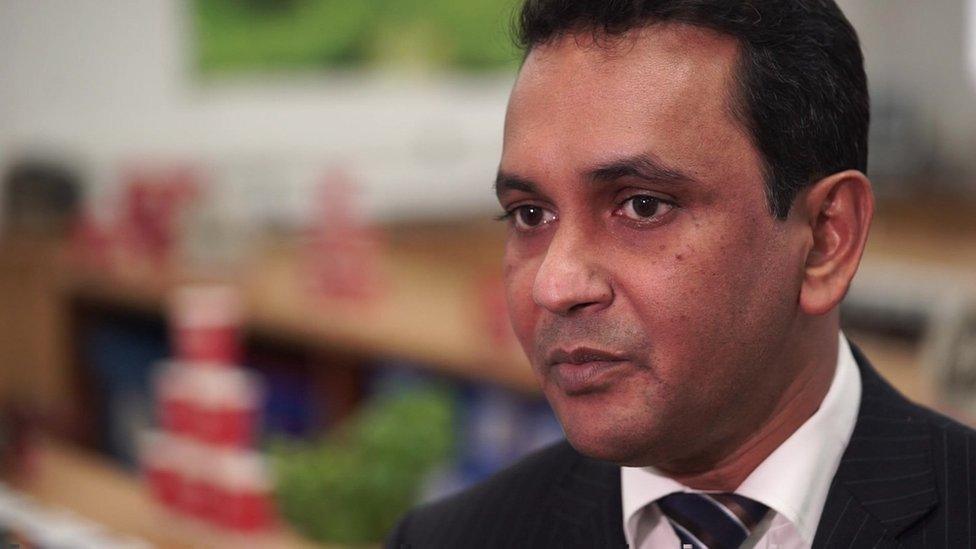
Somnath Saha says the fall in the pound has been an 'absolute disaster' for Typhoo
Typhoo Tea is owned by the Indian conglomerate Apeejay Surrendra Group, which Mr Saha says has supported the UK business for the last few months.
But he warned that if the fall in the pound was sustained, his business would be set to lose £3m, all but wiping out its profits. The time has now come to do something about it, he says.
"For everybody, it's been so difficult after June. We can't plan anything. Every day, you don't know what is going to happen next week. There is so much volatility."
Typhoo employs some 300 workers in the UK.
Industry issue
Many suppliers are talking to the supermarkets about price rises. These negotiations are normally confidential but they spilled into the open when Tesco's spat with Unilever became public.
Retailers and suppliers regularly discuss prices but, according to one industry expert, the current situation is different.
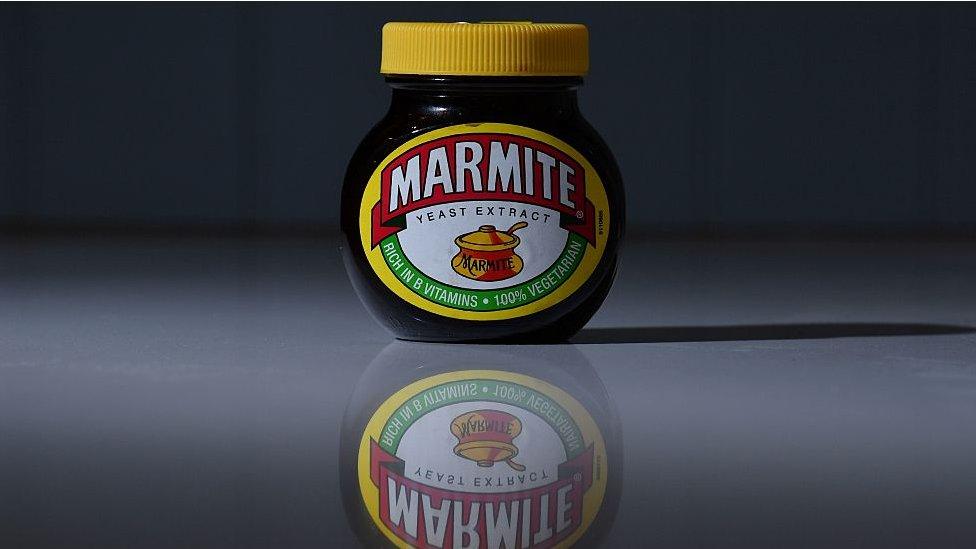
Tesco and Unilever fell out over prices earlier this month; fellow supermarket Morrisons has now raised the price of Marmite
"This is no cat and mouse game. What we've been seeing here is unprecedented," says David Sables from Sentinel Management Consultants, which advises suppliers on how to negotiate with supermarkets.
"The real change that's happened here is that it's happening at a time when the retailers' margins have been squeezed by the battle with Aldi and Lidl. They can't take any more pain. It comes with a price increase to them, they will have to pass it on.
"There needs to be a new approach, a getting together of everyone to sensibly sit down and see how they can protect the consumer against what is a real industry issue," he says.
There are ways to absorb costs. For instance, Tesco and Morrisons are trying to make their businesses more simple and efficient which will save money in the long run. Packaging and product sizes can also be reviewed.
January rises
But after years of falling prices in the aisles, it seems inevitable that some prices will rise.
"I think there is a wave of price increases to come, as early as January. That's when we'll see the biggest impact," says Mr Sables.
"The generally accepted view is 5% - that's an understatement of what we're seeing on the foreign exchange. The view is that the industry will absorb some of that difference."
For Typhoo Tea, the time has come to pass on some of its costs.
In the longer term, its boss says he will be trying to boost exports and take advantage of any Brexit opportunities, but the focus now is dealing with the fallout.
Mr Saha adds: "This is a real loss, a real pain for this business and we cannot accept this loss any more."
- Published28 October 2016

- Published13 October 2016
